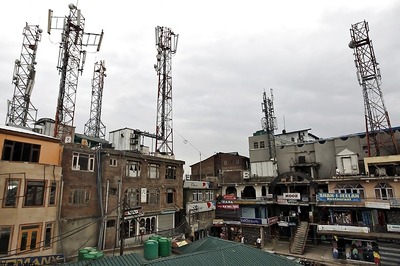
views
Millions of couples around the world today are facing fertility issues, and India is no exception. According to the Indian Society of Assisted Reproduction, India has a population of as many as 27.5 million infertile people, including men and women. In addition to this, a recent Lancet study found that India’s Total Fertility Rate will reduce to 1.29 in 2050. This highlights the seriousness of the issue. Infertility, as a condition, can be both physically and mentally overwhelming. The impact of this condition on the physical well-being of individuals is increasingly receiving attention and being discussed; however, the fact that it can significantly impact an individual’s mental health still lacks the required attention and discussion.
How does infertility lead to depression?
Various studies on infertility or reproductive health have largely focused on the physical impact of such conditions. Though it is true that physical health is considerably affected by infertility, it is also important to take into consideration the impact it can have on mental health. In many cases, infertility pushes individuals, especially women, into depression. The inability to fulfill their desire to embrace motherhood and the societal stigma that comes along affect women considerably, taking a toll on their mental health.
Consequently, this leads to depression. In addition to this, it is natural to experience feelings of sadness, hopelessness, and frustration while one is struggling to conceive. If not taken into consideration, these feelings or emotions can lead to depression. Sometimes, depression can manifest in unusual ways, making it difficult to identify and acknowledge it, not just for others but for the person suffering too.
Today, Assisted Reproductive Technologies (ART) such as In Vitro Fertilisation (IVF) and Intrauterine insemination (IUI) are being explored by women experiencing infertility. However, for successful outcomes, it is important for the individuals undergoing these treatments to know that they can be physically and mentally draining. There are various therapies and measures available to overcome the physical difficulties caused by these treatments, but the impact on mental health is often considered to be a usual occurrence, and consequently, it goes unaddressed. In many cases, the treatment might take longer than expected, significantly affecting the mental well-being of a woman and often leading to depression. Experts have also pointed out that stress caused by infertility can significantly impact the hormonal balance in the body, which can further disrupt the balance required for ensuring emotional well-being.
- Considering your feelingsIt is important to understand that women suffering from infertility might experience emotions such as sadness, hopelessness, frustration, and even depression. However, not addressing these and treating them as normal occurrences aggravates these feelings or emotions. Therefore, the first and most important step is to acknowledge them.
- Seek SupportSharing your feelings and discussing the complications one is facing can help in dealing with the emotional aspect of the issue better. Joining infertility support groups or online communities can help you connect with others facing similar challenges. Sharing experiences, tips, and encouragement can reduce feelings of isolation.
- Practice Self-CarePrioritizing self-care by engaging in activities like yoga, reading, gardening, or spending time with close people are effective measures for maintaining emotional balance. Regular exercise, nutritious eating, and sufficient sleep can also positively impact your mental well-being.
- Concentrate on things you can controlInfertility can be a challenging and stress-inducing experience. This can be dealt with by paying attention to the areas of your life that you can manage, such as following a healthy lifestyle and engaging in stress-relieving activities.
- Seeking professional assistanceIf an individual is consistently facing depressive symptoms, then it is advisable to consult an infertility specialist therapist who can provide the right kind of direction and coping mechanisms.


















Comments
0 comment